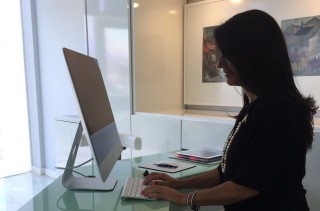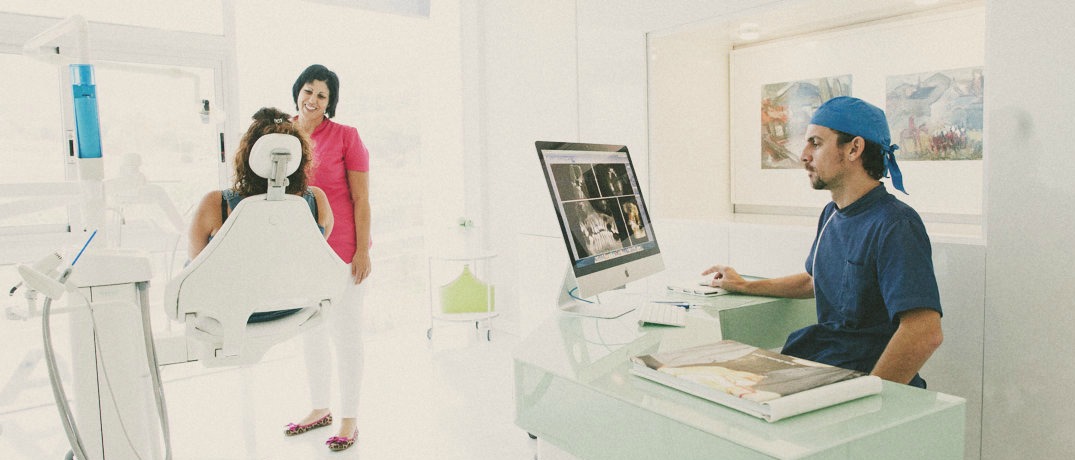Artedental highlights the keys to facing the recession, bubble franchises, chains and health care companies:
Diversification, specialisation, differentiation and research.
For many dental clinics, the crisis affecting Spain has had a direct impact on their business, as well as the dental health of their patients.
The annual visit to the dentist recommended by professionals became a dispensable expenditure during the worst years of the crisis unless something serious needed treatment. This was not helped because of the fact that dental care under the public health system is scarce and very unbalanced by regions, unlike the British or German systems of health, where the State pays more aid.
Between 2009 and 2012, business in Spain lived through its very worst times, according to the Institute for Market Research Key-Stone, in collaboration with the Spanish Federation of Healthcare Technology Companies (Fenin), which produces annual reports on developments in the sector.
Artedental, the orthodontics clinic based in Puerto de la Cruz, has been able to overcome these years and maintain a remarkable position until today when the trend seems now stabilised.


Amaya Sáez, director of the centre, says their strategy for solving the problems centres around four basic points: diversification, specification, differentiation and the high volume of customer acquisition from the recommendations, up to 75 per cent.
However, the crisis in the sector not only stems from the declining purchasing power of Spaniards, but also the bubble caused by the growth of franchises, chains and insurers, who saw potential business from the reduction in costs.
WHO recommends a dentist every 3,000 inhabitants. In Spain, there is one every 1,300, and in 2020 is expected to have 40,000 throughout the whole country.
According to Amaya Sáez, “the country has been allowed to open private schools and faculties indiscriminately. Franchisees benefit by paying very low wages, which threatens patient service, which not only lacks expertise and experience, but also creates an unmotivated professional and highly pressured by economic performance”.
Many dentists also denounce the rise of misleading advertising by the big franchises.
This was not the case at Artedental which did not enter into price wars. They concentrated on giving patients all the information they needed and stressed the benefits to their health and of communication.
“The key to their decisions is confidence and not the price,” said Amaya Sáez.
According to the data produced by experts, the patient prefers the traditional clinic for routine clinical treatments; but chooses the franchises for the most expensive because of the funding.
Artedental feels it doesn’t fall into either of these two groups but incorporates the best of both.
That is closeness, trust, familiarity with the traditional clinic with specialisations and diversification of treatment, together with supplementary services which a clinic with an exemplary organisational model can offer.
However, the organisational structure of large franchises also has a positive side.
For Key-Stone, the clinics which have succeeded are those that are better organised, led by young professionals and are therefore being expanded.
Artedental doesn’t reject the benefits of network expansion. They began their careers creating Artedental Group, which currently has five clinical partners in Spain and abroad.
“Working in a network enables us to have more bargaining power with suppliers, centralising services and thus lowering prices”, they explain.
However, they totally reject anything which would jeopardise customer service.
“The patient is increasingly sensitive to the added value of treatment and appreciate the complementary services”, says Amaya Sáez.
They have their own facilities including a laboratory, scanner and analytics and a service which values the patient, to the point where they determine their own decisions.
“You must have a team of specialists and a business model, which is the path that we have chosen”.
During the difficult times, the industry also suffered a decline of investment in new technologies.
Artedental has found that betting on specialised professionals has in some cases produced better results than simply investing in technology, as well as in investigation.
Regarding research, they designed a prosthesis manufacturing process and managed to create a more accurate, more personalised, faster and cheaper to manufacture product for the patient which they patented under the name of ArtOn4, a screw-implanted prothesis which allows the complete rehabilitation of the maxilar in one single day.
https://www.artedentalclinic.com/en/immediate-loading-in-tenerife/
To continue working with quality and taking care of the patient is the best way to progress.



